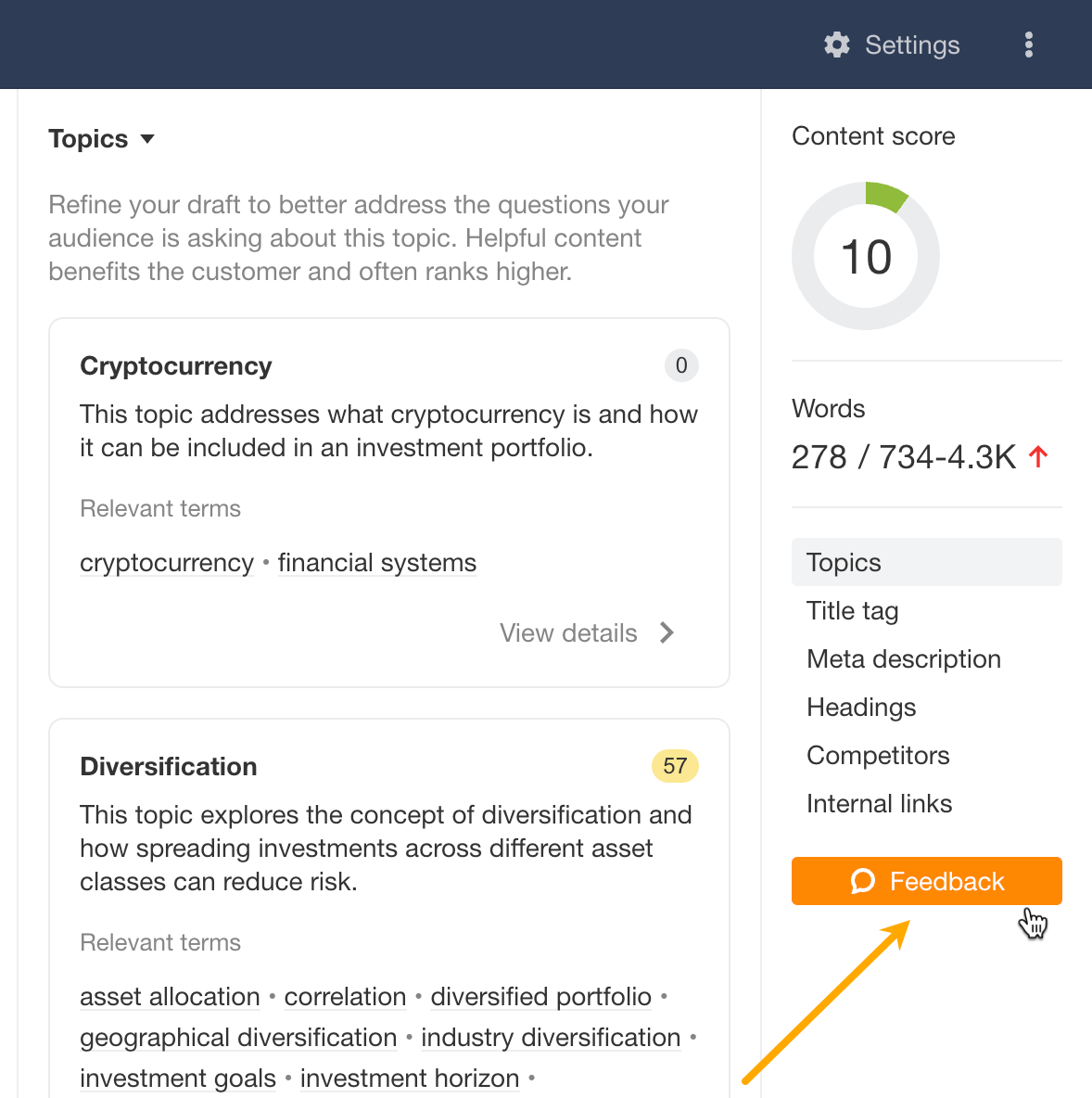They provide extensive raw data, but it’s often misused. Rather than drawing inspiration from it, many choose the easy route, producing over-optimized, copy-cat content aimed at search engines rather than real readers.
Google is not sleeping on the problem. To fight the “scaled content abuse”, they’ve released the March 2024 Spam Update, which successfully reduced unhelpful content by 45% by the end of its rollout.
Their ongoing efforts continue with the August 2024 Update, which aims to prioritize genuinely useful content while reducing the visibility of content created solely to rank in search results.
In response to the latest AI misuses, we’ve decided to launch our own content optimization tool – but with a twist.
Meet: Ahrefs’ AI Content Helper.
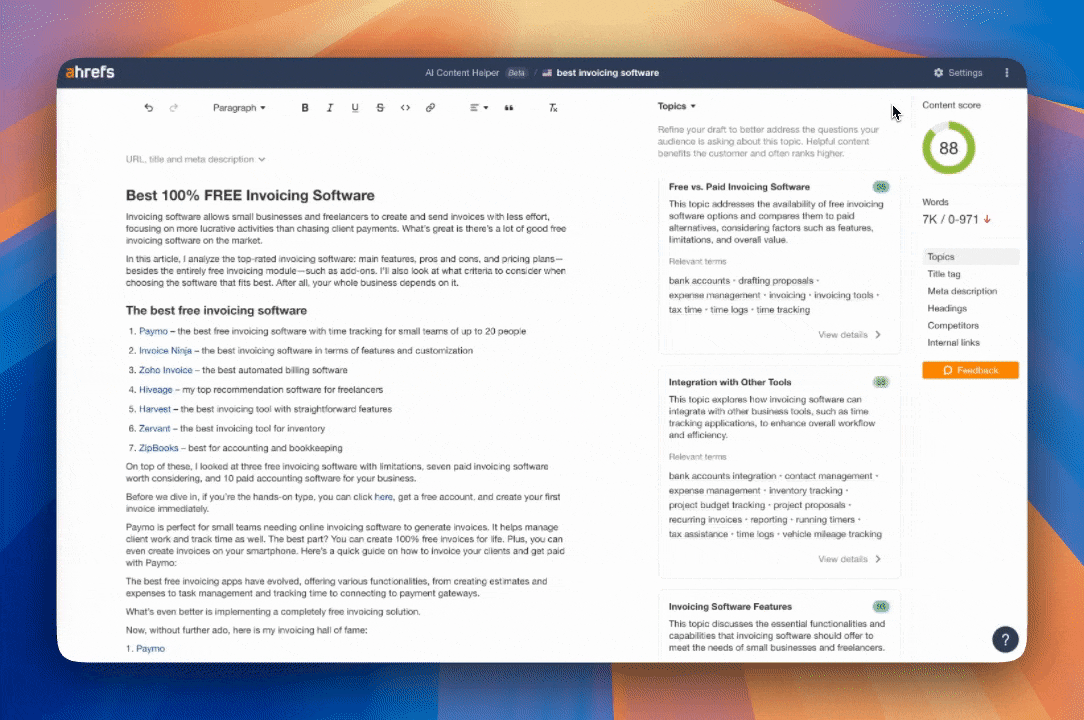
We take a more natural approach, focusing on topics (not just keywords).
The goal is not keyword density, but comprehensive content coverage.
So instead of counting the number of keywords to include in your article, our Content Helper uses AI to identify the core topics for your target keyword.
It then scores your content, along with your competitors’, against those topics in real-time as you write the article.
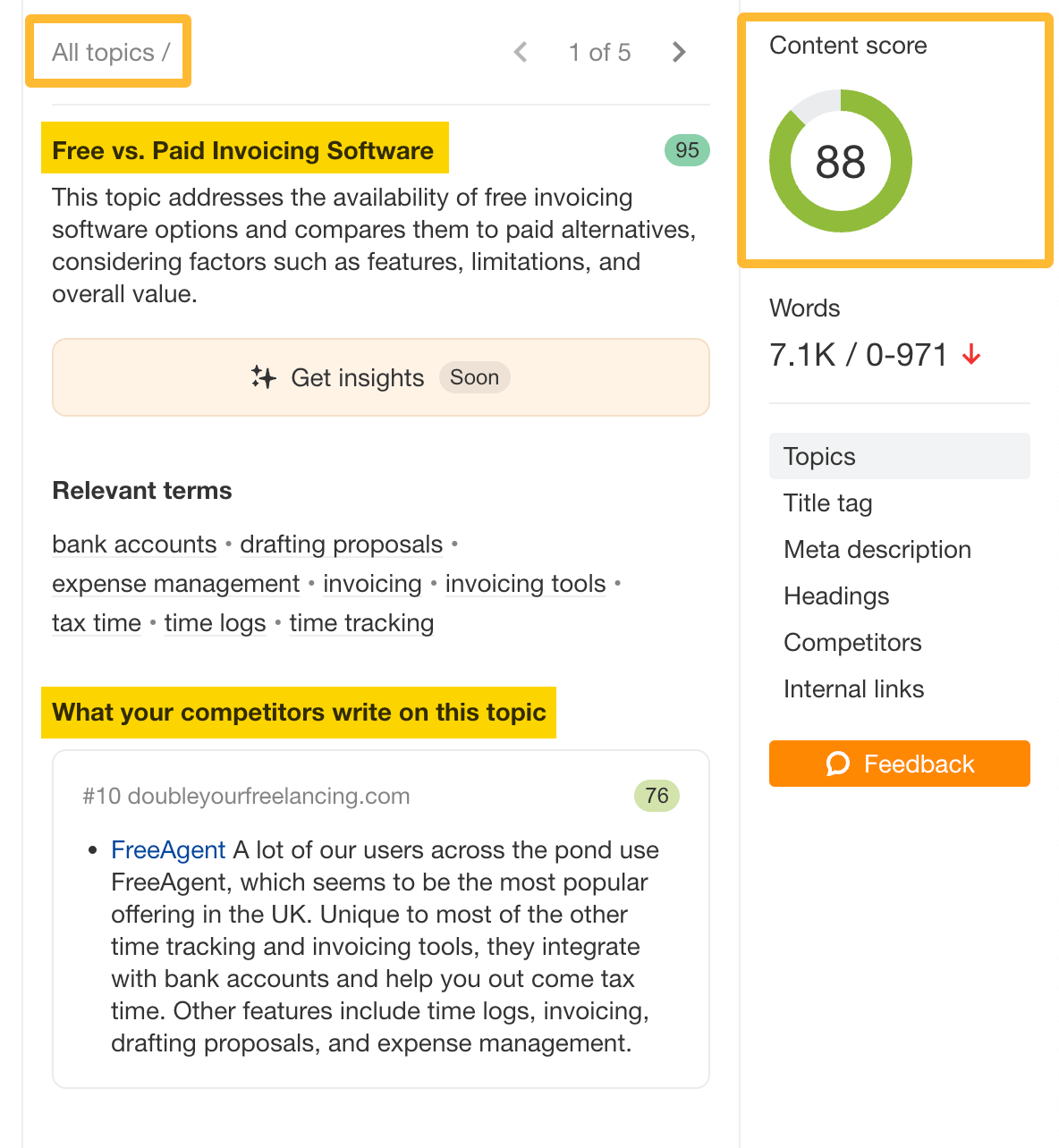
We think this makes for better, more value-added content that’s more closely aligned with what both readers and Google increasingly want.
Ryan Law, our Director of Content Marketing, summarized this better:
This approach puts the writer in the driving seat, giving you tons of competitor data to inform your own writing process—instead of delegating away your creativity wholesale and churning out another copycat article in the process.
To access the AI Content Helper, click on it in the upper bar menu.

Then follow the next steps to get the most out of it.
Step #1: Add your target keyword
Specify the target keyword for which you want to rank (and an optional URL). Then hit Create document.
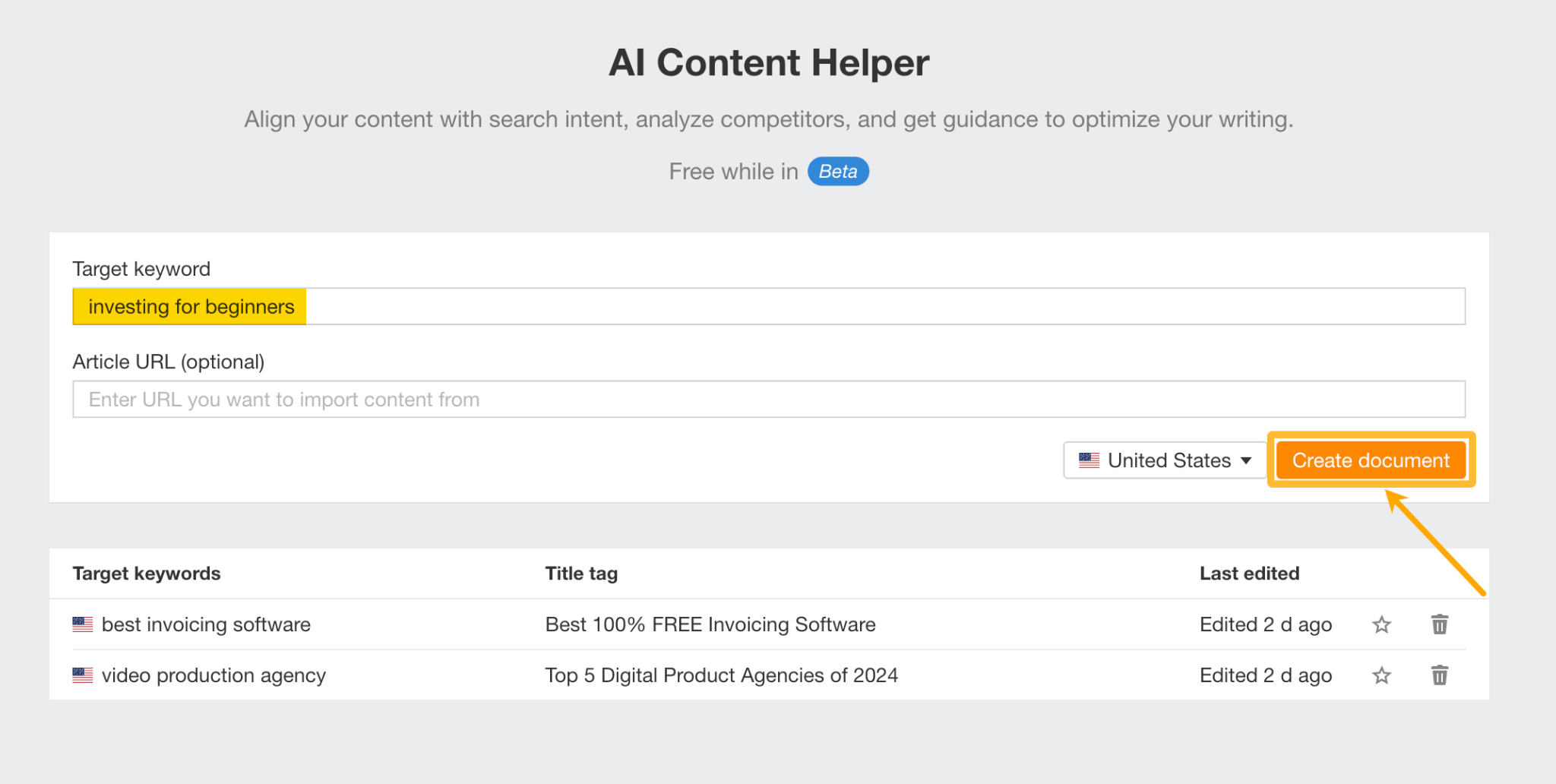
Step #2: Choose the search intent you want to optimize for
Next, choose the search intent you want to analyze from the Top 10 search results. Don’t worry – we identify multiple search intents, so you can optimize for each individually.
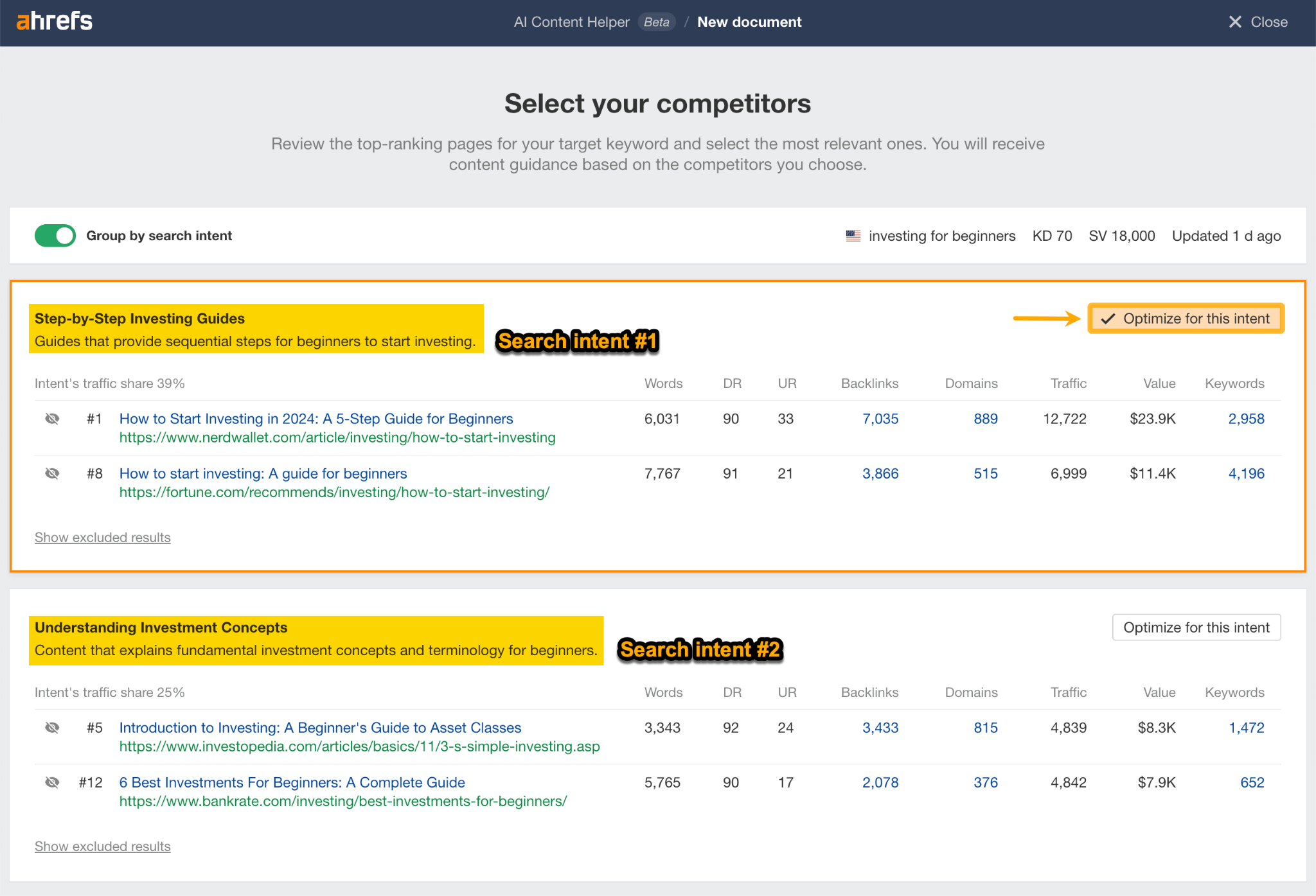
If you don’t want to improve your content based on search intent, turn off the Group by search intent option and choose the competing articles you want to optimize against.
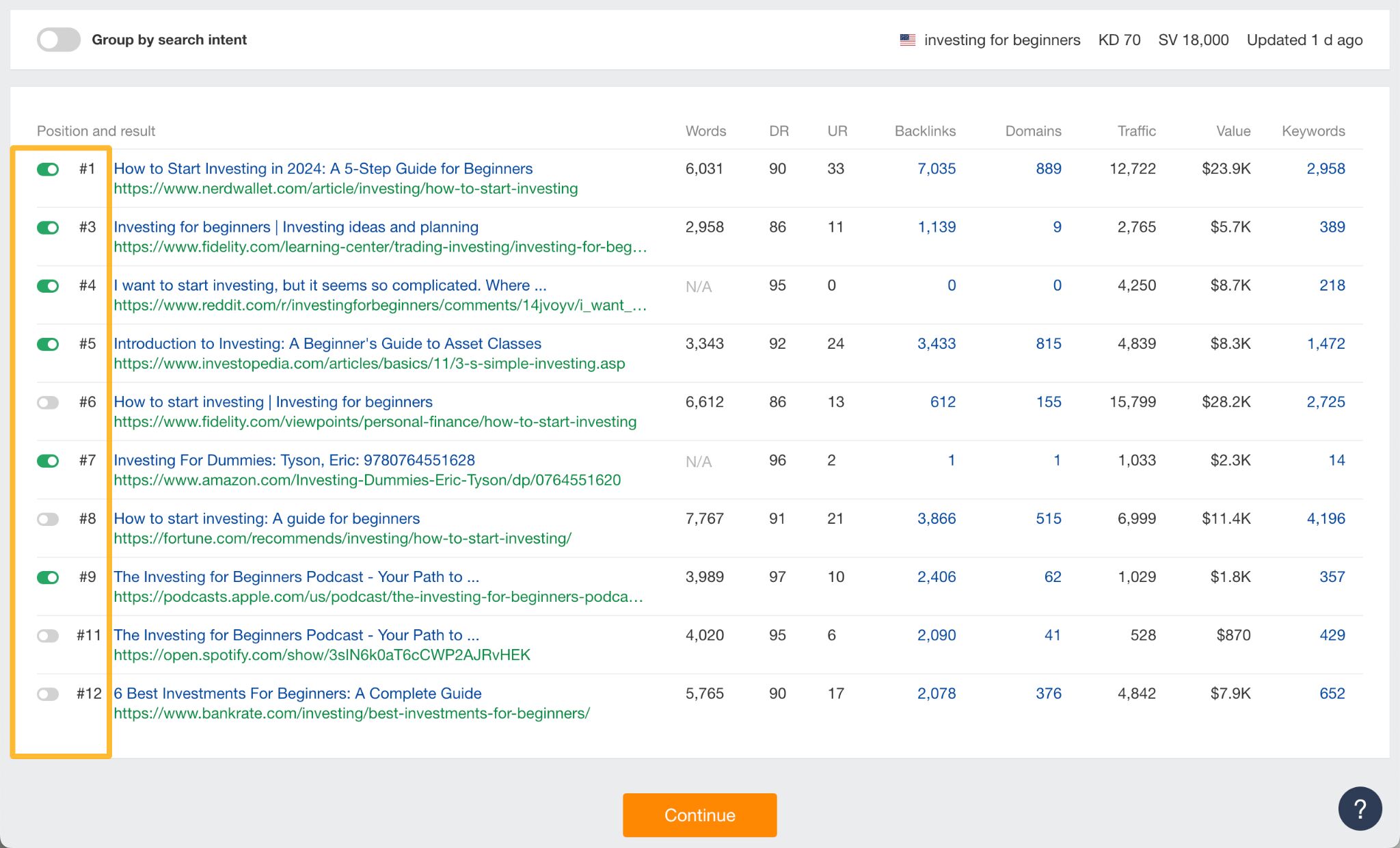
Step #3: View the key topics present in SERP
After choosing a search intent, you’ll see all the topics covered by the top-ranking pages and a live score on how well you fare against them that gets updated as you edit your article.
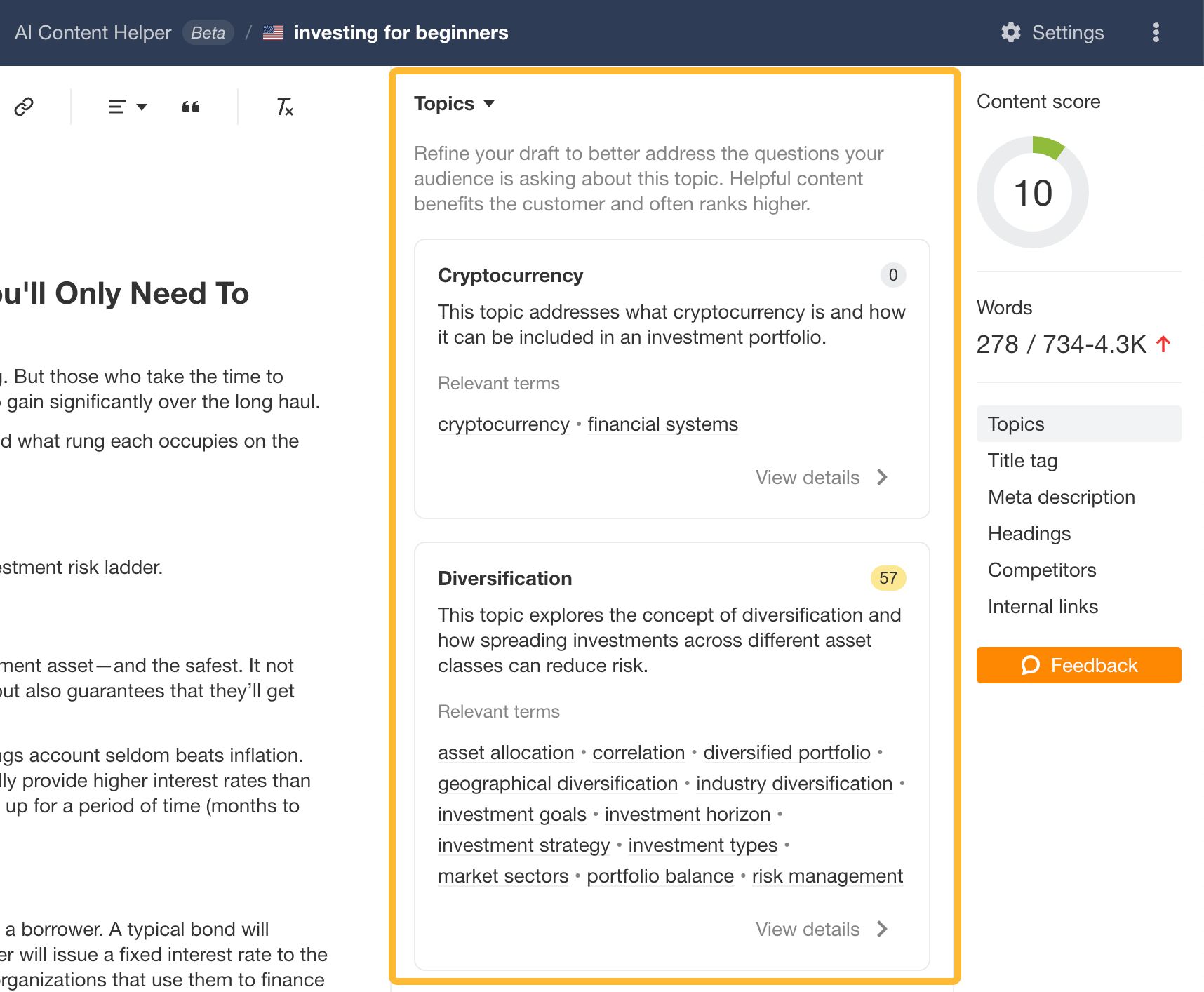
For example, in our draft on “investing for beginners”, we didn’t mention “dollar-cost averaging” – a common investing method. Hence our topic score is 0, which means we ought to cover it.
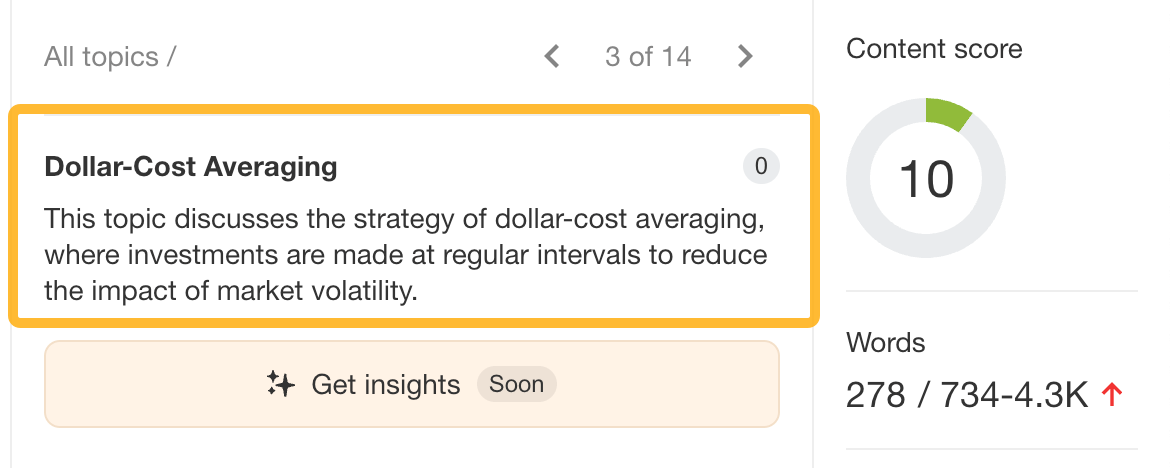
Step #4: Study the text snippets of top-ranking pages
From here, click on View details to further investigate topics with a poor score and see:
- Exactly what top-ranking pages write about it (and how you can better cover it)
- Relevant keywords connected to the topic and the context in which they’re used
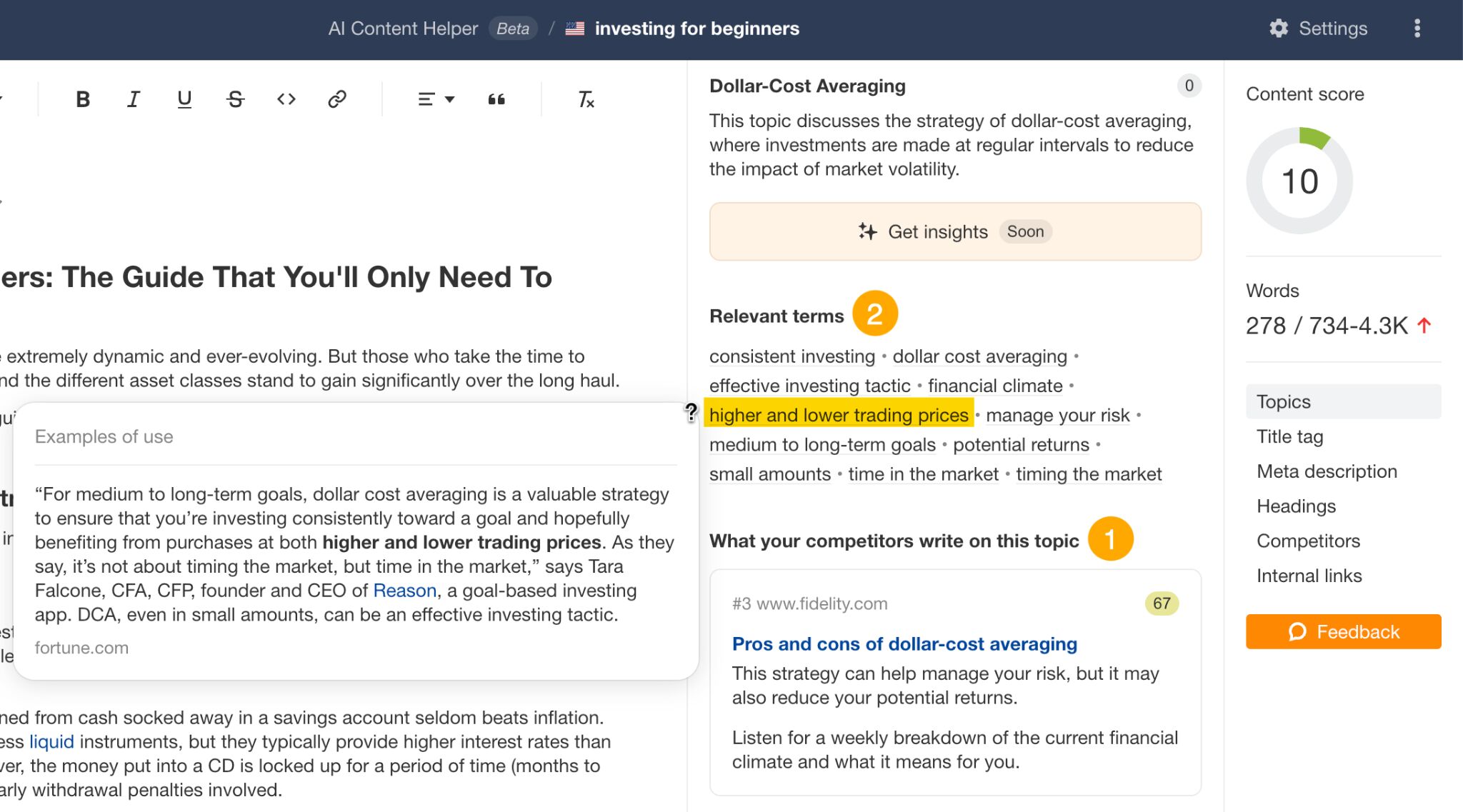
Step #5: Use AI to brainstorm title tags, meta descriptions, and headings
The optimization doesn’t stop here. You can go one step ahead and use AI to brainstorm title tags and meta descriptions on your behalf.
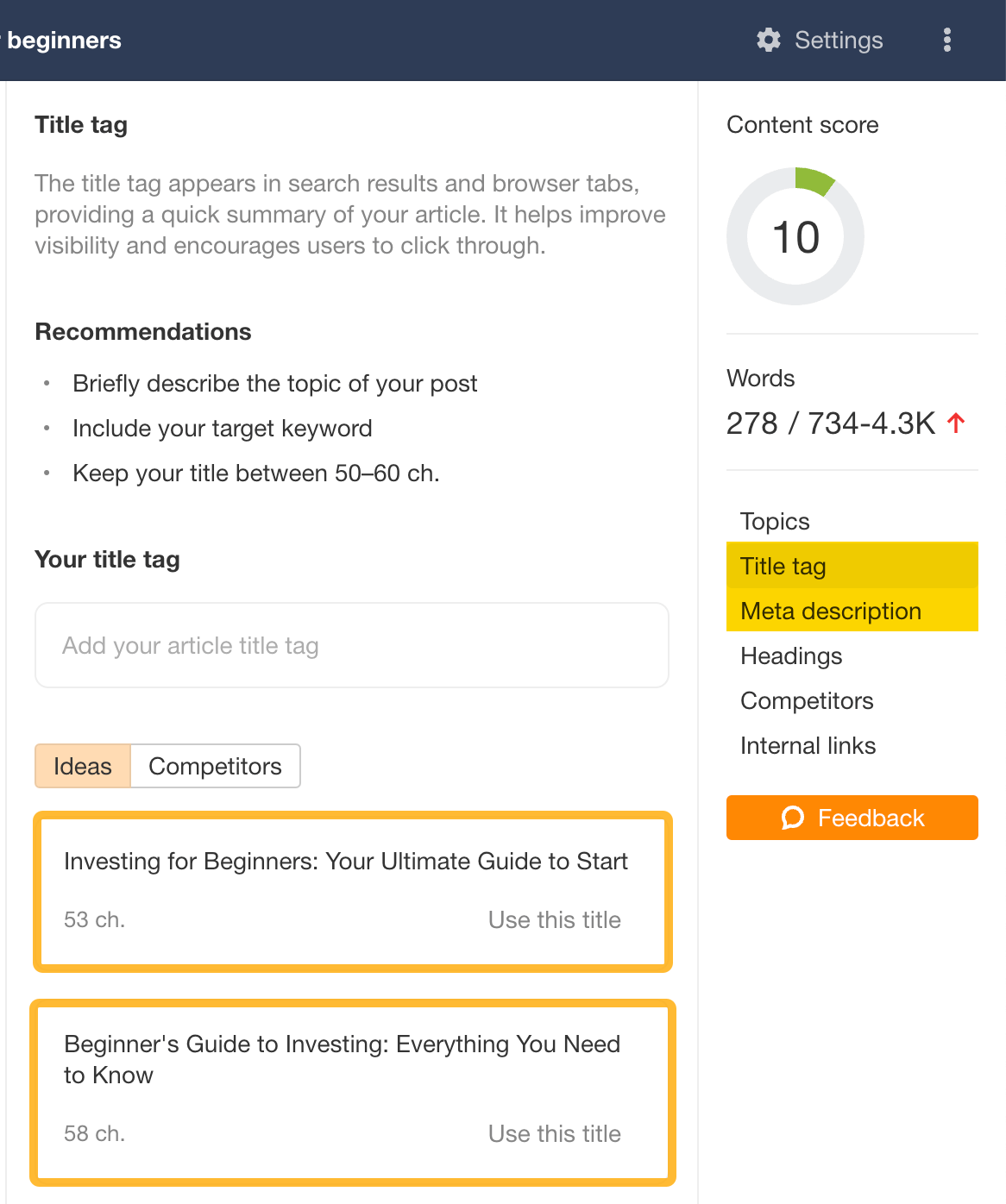
Or even better, study your competitors’ headings structure to address potential topical gaps and organize your thoughts in a more logical manner.
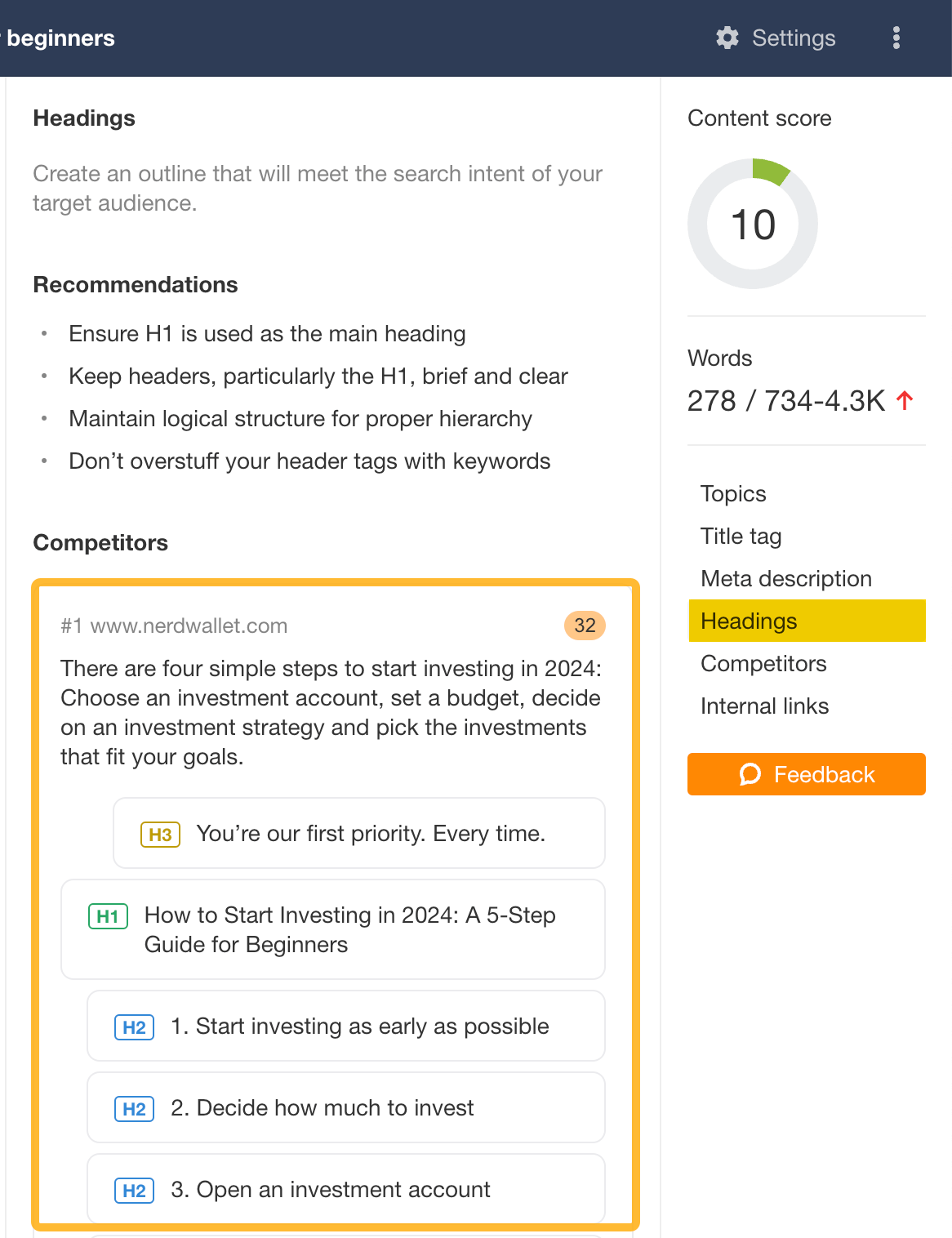
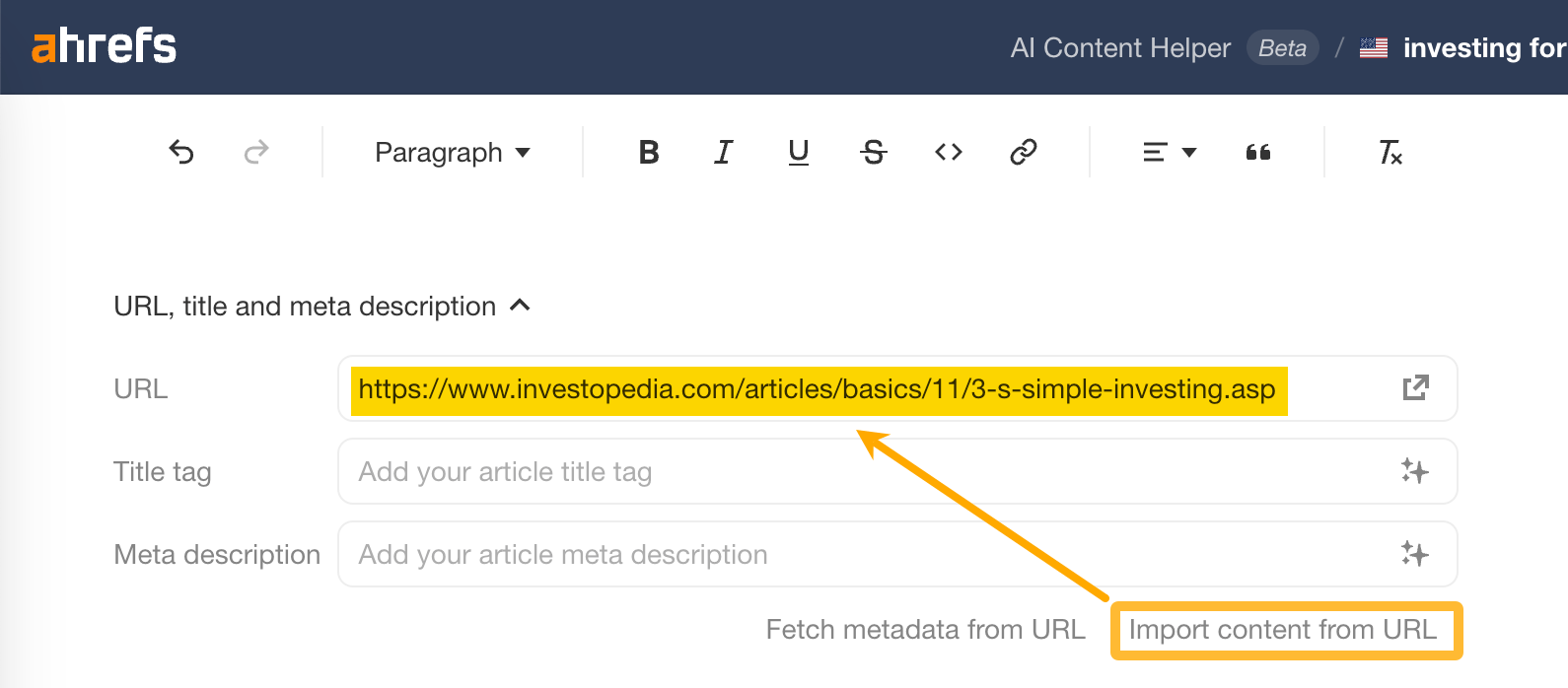
While in beta, AI Content Helper is free for all paid plans – including legacy ones.
In the future, our content optimization tool will help you:
- Get word-for-word recommendations on how to cover topical gaps
- Study competitor insights on areas where they’re winning
- Automate internal linking to boost content authority
- Collaborate with external stakeholders
For now, we hope that the beta version is strong enough to fuel your creativity and not replace it.
Have any use cases in mind or suggestions for improvements? Share them with us by clicking on the Feedback button.
